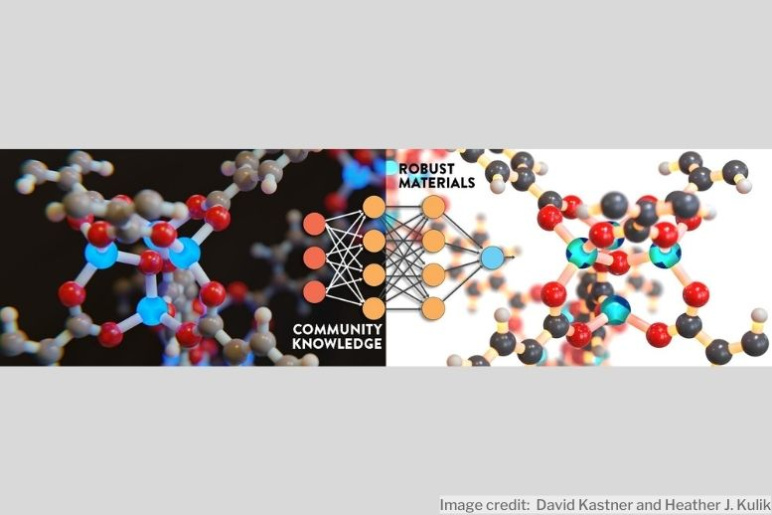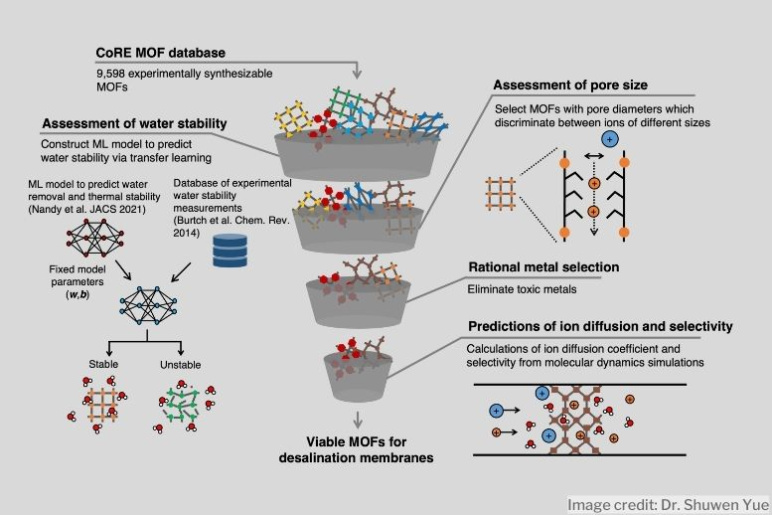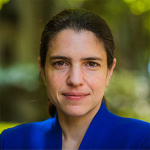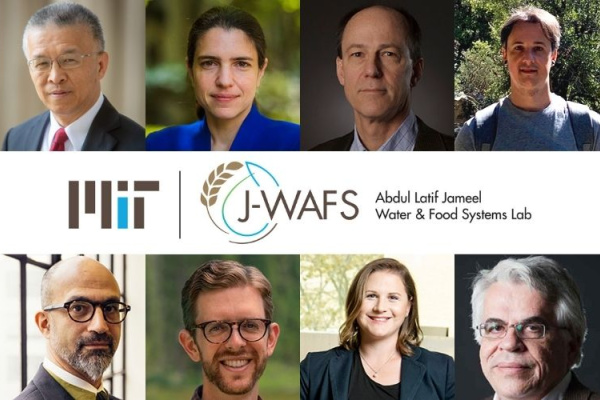Our Research In silico discovery of metal-organic frameworks for selective ion separation

Machine learning models will learn which properties of metal-organic frameworks make them stable

A multi-faceted approach to discovering stable metal-organic frameworks suitable for water purification
Principal Investigator
Heather J. Kulik
- Associate professor
- Department of Chemical Engineering
Heather J. Kulik is a tenured associate professor in the Department of Chemical Engineering at MIT. She received her B.E. in chemical engineering from the Cooper Union in 2004 and her PhD in materials science and engineering at MIT in 2009. She completed postdoctoral training at Lawrence Livermore and Stanford, prior to returning to MIT as a faculty member in 2013. Her research has been recognized by a Burroughs Wellcome Fund Career Award at the Scientific Interface, Office of Naval Research Young Investigator Award, DARPA Young Faculty Award, NSF CAREER Award, and a Sloan Fellowship in chemistry, among others.
Photo Credit: Gretchen Ertl
Challenge:
How can we identify optimal materials for water purification that have precision pores for separation and good stability in operating conditions?
Research Strategy
- Leverage and extend existing models of stability for metal-organic frameworks (MOFs) to predict suitable MOFs for ion separation
- Design a new dataset of "ultrastable" candidate MOF materials
- Screen "ultrastable" MOFs with molecular simulation to identify optimal materials for water purification
Project description
The treatment and reuse of water mandate the ability to purify this precious resource by selectively removing small ions from solution. Nature has achieved this exquisite selectivity, but manmade materials lag behind despite the primary importance of selective ion separation in scalable materials for water purification and desalination. Metal-organic frameworks (MOFs) represent promising materials for this task because their pores can be tailored to have precise shapes and chemical makeup for selective ion affinity. Nevertheless, the combinatorial space of all conceivable MOFs is vast, and few MOFs have been assessed for their properties relevant to water purification. Many MOFs will break down at reasonable temperatures or otherwise lack stability, including in water.
To unlock the potential of MOFs for water purification, virtual high-throughput screening (VHTS) accelerated by machine learning (ML) models and molecular simulation can accelerate discovery of MOFs that do not have these limitations. Specifically, these VHTS strategies will use ML to leverage existing knowledge about what dictates MOF stability. This research project will develop novel computational strategies to identify optimal MOF materials for water purification by curating and searching a wide space of new "ultrastable" MOF structures.
Publications
MOFs with the Stability for Practical Gas Adsorption Applications Require New Design Rules
Changhwan Oh, Aditya Nandy, Shuwen Yue, Heather J. Kulik, 2024
Metal–Organic Framework Stability in Water and Harsh Environments from Data-Driven Models Trained on the Diverse WS24 Data Set
Gianmarco G. Terrones, Shih-Peng Huang, Matthew P. Rivera, Shuwen Yue, Alondra Hernandez, Heather J. Kulik, 2024
Unraveling Polymer–Ion Interactions in Electrochromic Polymers for their Implementation in Organic Electrochemical Synaptic Devices
Heejung Roh, Shuwen Yue, Hang Hu, Ke Chen, Heather J. Kulik, and Aristide Gumyusenge, Advanced Functional Materials, 2023
News
Additional Details
Impact Areas
- Water
Research Themes
- Water Purification & Desalination
Year Funded
- 2022
Grant Type
- Seed Grant
Status
- Ongoing

